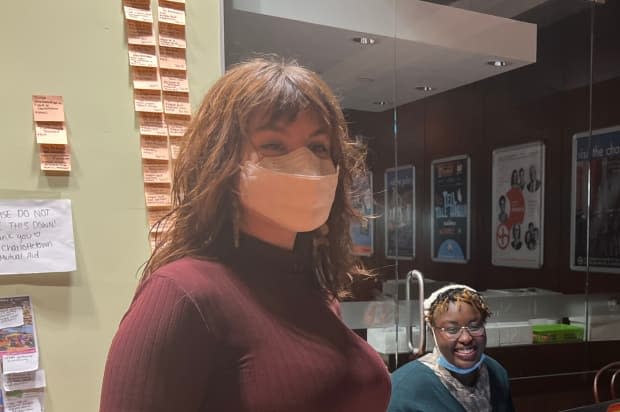BIPOC USHR unsurprised as P.E.I.'s number of hate crimes doubles

A rise in the number of hate crimes on P.E.I. is not at all surprising, local advocates say.
Nineteen cases of hate-motivated crimes were reported by police in 2021, data from Statistics Canada shows.
That's more than double the number of cases reported the year previous — eight cases were reported in 2020.
The increase means the rate of police-reported hate crimes on P.E.I. per 100,000 people is now the highest in the country. They represent 11.6 cases per 100,000 people, compared to 8.8 cases per 100,000 people for Canada as a whole.
Race and ethnicity were the motivating factors in 10 out of the 19 cases. Four were based on sexual orientation, three on religion, and two were for other reasons.
Police-reported hate crimes, per 100,000 population
The P.E.I.-based not-for-profit organization, BIPOC USHR — which stands for Black, Indigenous, and People of Colour United for Strength, Home, Relationship — says the rise may be due to people being more educated about the sort of recourse they have if they experience a hate crime.
But community navigator Nouhad Mourad says that based on what the organization is hearing from the community, the figure is "significantly smaller" than the actual number of hate crimes happening on the Island.

"I'm not thinking that it's increased necessarily, but I think that that is the trend across Canada," she said.
"People have become much more comfortable with attitudes and behaviours that are based in hate than in the past."
Mourad said it's difficult to say what the actual situation looks like because there is a lack of data about racially-motivated crimes.
But she added BIPOC USHR has heard more accounts of verbal or physical attacks since the pandemic began amid an increase in "racist rhetoric."
"I've heard of people walking down the street and getting things thrown at them ... having names called at them, racial slurs. So people haven't been safe even going to a grocery store or walking down the street," Mourad said.
"I've been involved in situations where people have tried going through IRAC [the Island Regulatory and Appeals Commission] for things like people being quite predatory on newcomers.... I've seen them be very, very exploited and I've seen government agencies like IRAC not doing enough to challenge some of the things that are happening."
Police taking cases 'very seriously'
RCMP Const. Gavin Moore said police recognize the increase, and that it's important for Islanders who are witnesses or victims to any type of hate-motivated crime to speak up.
"We want to make sure that everybody has their say with their local police and we want to make sure that they're comfortable to come forward and make any report, should they encounter any type of hate-motivated crime," Moore said.
He said the Criminal Code has specific sections that relate to hate crimes. But anything that doesn't fall within those sections can still be taken into account, though the challenge is to prove a crime is actually motivated by hate.
"These crimes do have an outsized effect," Moore said. "When an entire community can be affected by one person or one group's act, it certainly has very big implications, and for that reason the RCMP take it very seriously."
Meanwhile, Mourad said the trend is "deeply concerning," and that more needs to be done at the provincial level to address it.
"We need more protections for people. We need more legislation against hate crimes in the province. We need more legal supports to challenge these so that people know where to turn to," she said.
"We need politicians to take a strong stance, a really strong stance, against white supremacy, and I think they need to use that language."


